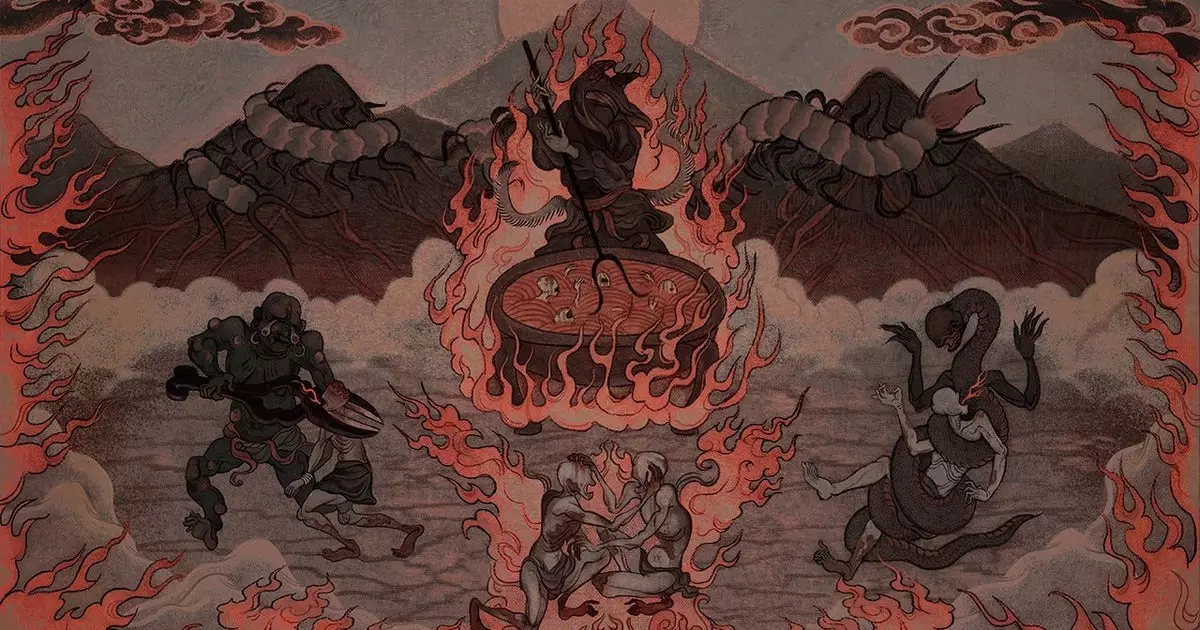In the ever-expanding world of indie horror gaming, “Labyrinth Of The Demon King” emerges as a churning paradox of dread and discovery. The game cleverly amalgamates the horrid atmospheres reminiscent of classics like “Silent Hill” and “Amnesia: The Dark Descent,” while drawing inspiration from the stamina-based combat mechanics found in the early “King’s Field” RPGs by From Software. This concoction of influences presents itself not just as a game to play, but an experience that grips at the very fabric of human anxiety.
A Setting Steeped in Myth
Set within a reimagined “mythical feudal Japan,” the game tantalizes players with a narrative that explores the dark underbelly of the supernatural. The mission at the heart of the game is deceptively simple: locate and eliminate the yokai boss responsible for leading your lord into treachery. Yet, the protagonist soon discovers that this quest requires navigating a filthy maze teeming with grotesque creatures vying for dominance and survival. The game’s design brilliantly encapsulates the feeling of paranoia; each encounter feels less like a battle against a singular enemy and more like an endless struggle for survival in a twisted ecosystem.
The Horror Unveiled: Twisted Corners and Unspeakable Creatures
As players delve deeper into the labyrinth, they are greeted by surreal horrors. A house filled with grotesque, whispering fungi serves as a vivid backdrop for encounters with abominable entities nicknamed “filthbastards.” These deranged antagonists, both eager to kill the protagonist and each other, embody the chaos of a world gone awry. This chaotic behavior underscores a critical design choice, as it forces players to realize that they are merely one more pawn in a brutal game of survival, constantly on edge as they navigate a hostile environment. The horror, in essence, lies in the existential belittlement—players are not the main characters but mere observers caught amidst a monstrous struggle.
Combat and Equipment: A Struggle for Survival
The gameplay mechanics amplify the harrowing experience. Armed with rudimentary gear—a nearly useless katana, dubious healing items, and a bottle of sake—the player must make use of fragile resources. The realities of combat require a strategic finesse that feels reminiscent of an era where players had to tread carefully to avoid catastrophe. The player’s ability to kick enemies strategically may serve as a momentary relief, but it simultaneously complicates melee engagement, forcing a tension-filled balancing act. Such a choice not only enhances the gameplay but propels the tension, as players are constantly reminded of their own vulnerability in a space littered with threats.
Atmosphere: A Descent into Dread
A standout feature of “Labyrinth Of The Demon King” is its hauntingly immersive atmosphere. The game’s visuals reek of grime and despair, echoing the aesthetic choices of early survival horror titles. The dithering effects, static cutscenes, and awkward camera angles elevate the sense of unease, drawing players into a low-quality yet high-impact psychological landscape. This was not just a missed opportunity of nostalgia wrapped in a modern design—it’s a conscious choice to recreate an era when horror games relied heavily on mental tension and an encroaching sense of dread instead of jump scares.
A Cautionary Tale of Engagement
Despite its raw intensity, “Labyrinth Of The Demon King” comes with caveats that potential players should consider. The demo available on Steam provides a glimpse into this unsettling universe, yet it conspicuously lacks the ability to transfer save data from the demo to the full version. This lack of continuity may frustrate players and dampen the otherwise visceral experience, forcing them to navigate the same harrowing environments again—an annoyance that could detract from immersion.
The game thrives on tension and atmosphere, successfully establishing itself as a product of loving homage to the booming indie horror genre. It seduces players into engaging with its horrors, but the balance between enjoyment and frustration teeters precariously. “Labyrinth Of The Demon King” may not be everyone’s cup of sake, but for those willing to embrace its unsettling charm, it offers a haunting journey through darkness that honors the legacy of its inspirations.


Leave a Reply